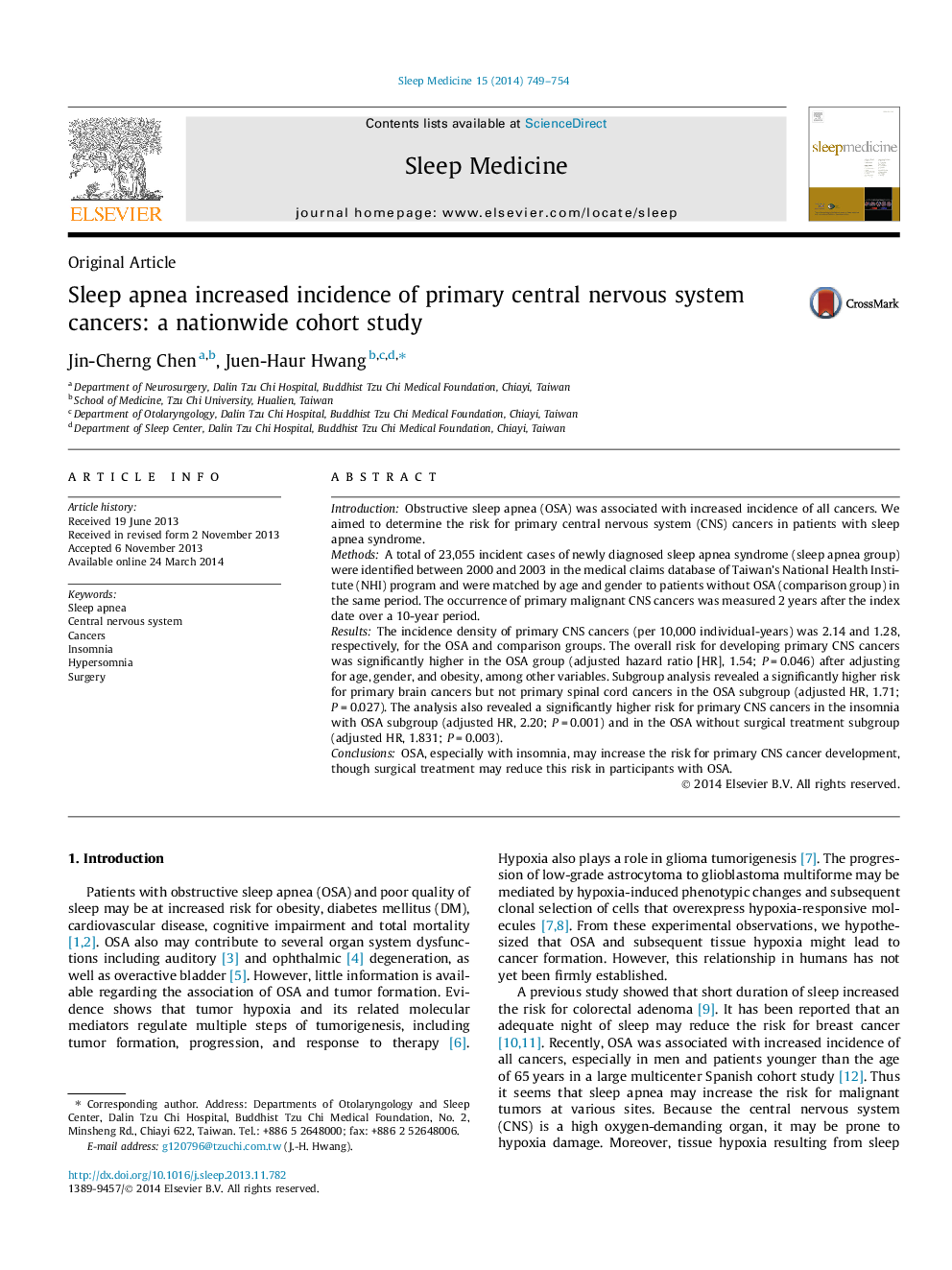| Article ID | Journal | Published Year | Pages | File Type |
|---|---|---|---|---|
| 3175885 | Sleep Medicine | 2014 | 6 Pages |
•Sleep apnea might precede or increase primary central nervous system (CNS) cancers.•Sleep apnea had significantly higher risk for primary brain cancers.•Insomnia with sleep apnea had higher risk for primary CNS cancers.•Surgical treatment for sleep apnea might lower the risk for primary CNS cancers.
IntroductionObstructive sleep apnea (OSA) was associated with increased incidence of all cancers. We aimed to determine the risk for primary central nervous system (CNS) cancers in patients with sleep apnea syndrome.MethodsA total of 23,055 incident cases of newly diagnosed sleep apnea syndrome (sleep apnea group) were identified between 2000 and 2003 in the medical claims database of Taiwan’s National Health Institute (NHI) program and were matched by age and gender to patients without OSA (comparison group) in the same period. The occurrence of primary malignant CNS cancers was measured 2 years after the index date over a 10-year period.ResultsThe incidence density of primary CNS cancers (per 10,000 individual-years) was 2.14 and 1.28, respectively, for the OSA and comparison groups. The overall risk for developing primary CNS cancers was significantly higher in the OSA group (adjusted hazard ratio [HR], 1.54; P = 0.046) after adjusting for age, gender, and obesity, among other variables. Subgroup analysis revealed a significantly higher risk for primary brain cancers but not primary spinal cord cancers in the OSA subgroup (adjusted HR, 1.71; P = 0.027). The analysis also revealed a significantly higher risk for primary CNS cancers in the insomnia with OSA subgroup (adjusted HR, 2.20; P = 0.001) and in the OSA without surgical treatment subgroup (adjusted HR, 1.831; P = 0.003).ConclusionsOSA, especially with insomnia, may increase the risk for primary CNS cancer development, though surgical treatment may reduce this risk in participants with OSA.
